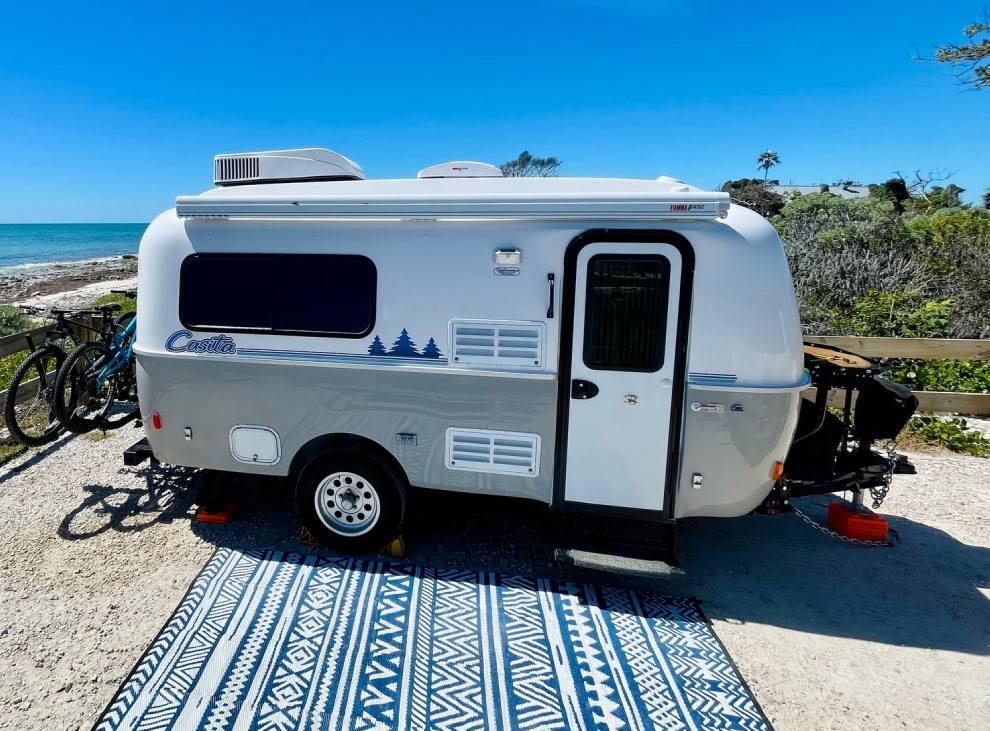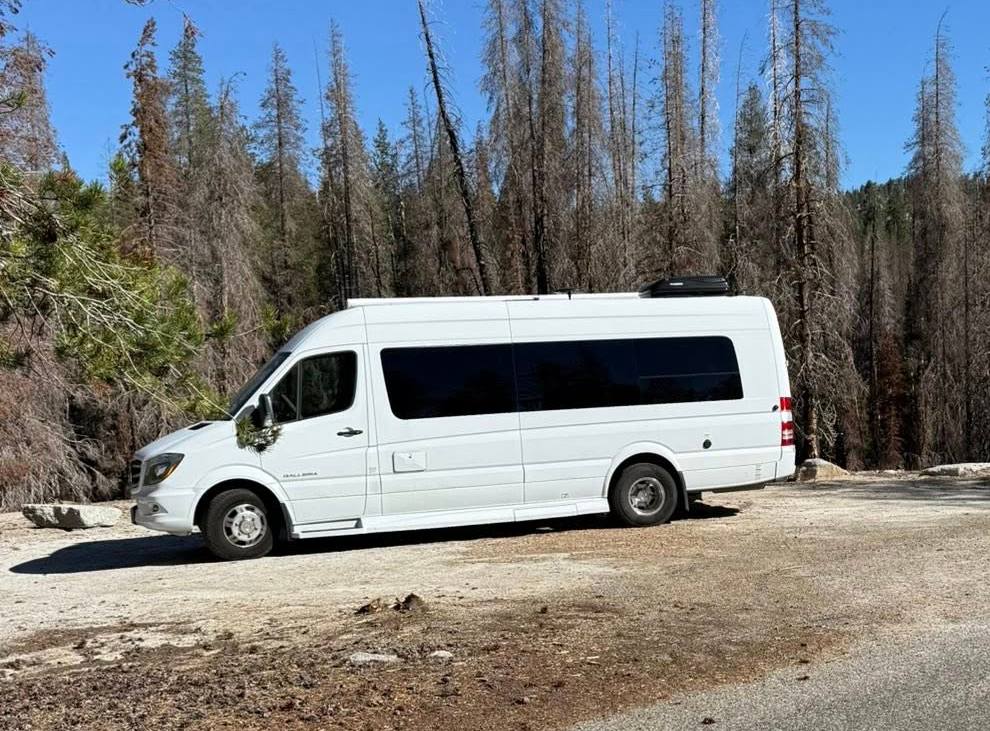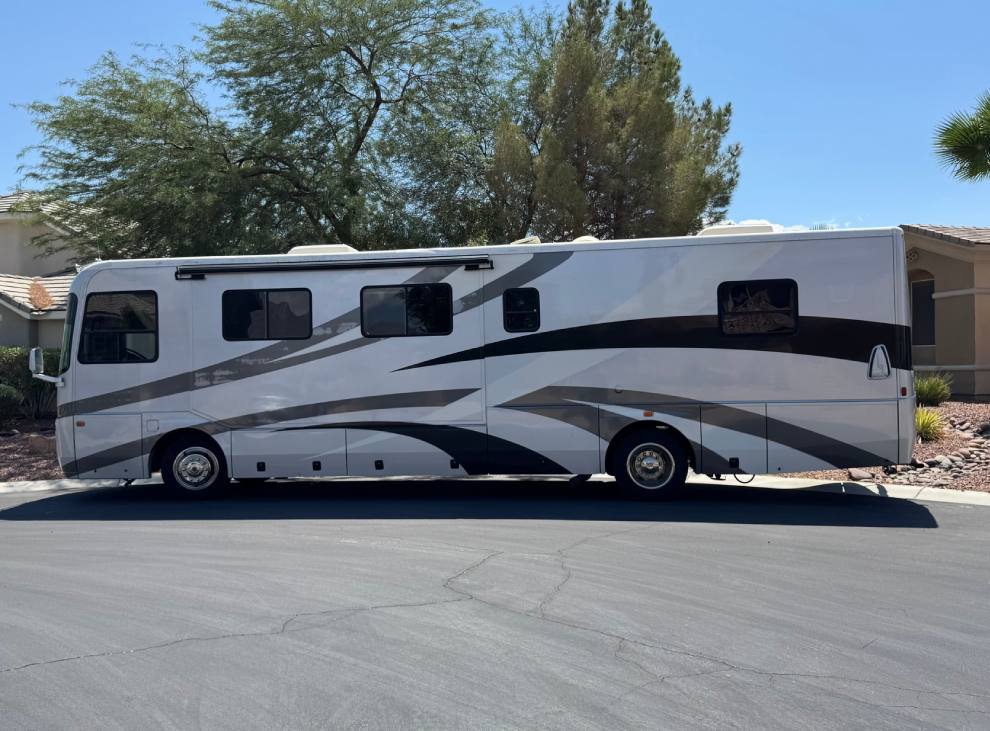The Complete RV Buyer's Guide: Making Smart Decisions in 2026
Navigate the complex world of RV purchasing with confidence. This comprehensive guide covers everything from sizing and budgeting to avoiding costly mistakes that trip up first-time buyers.
Key Takeaways from This Guide
- • Start smaller than you think - most beginners overestimate their space needs
- • Budget 25-40% above purchase price for annual operating costs
- • Floor plan matters more than square footage for daily comfort
- • Professional inspections can save thousands in hidden repair costs
Purchasing your first recreational vehicle represents more than just buying a mode of transportation—you're investing in a lifestyle that promises adventure, freedom, and countless memories. However, the RV market can be overwhelming for newcomers, with dozens of manufacturers, hundreds of floor plans, and price points ranging from $15,000 to well over $500,000.
The statistics tell a sobering story: nearly 40% of first-time RV buyers make a purchase they regret within the first two years. These regrets typically stem from choosing the wrong size, underestimating ongoing costs, or prioritizing the wrong features. This guide exists to ensure you don't become part of that statistic.
Before You Start Shopping
Take time to honestly assess your travel style, technical comfort level, and long-term goals. The perfect RV for weekend camping differs dramatically from one designed for full-time living or cross-country adventures.
Choosing the Right Size: Bigger Isn't Always Better
The allure of spacious motorhomes is undeniable, but size brings complexity. Larger RVs require more skill to operate, limit your destination options, cost more to maintain, and consume significantly more fuel. For first-time buyers, we strongly recommend starting in the 22-28 foot range.
Under 25 Feet
Recommended for Beginners
- Easy to drive and park
- Access to most campgrounds
- Better fuel economy (10-14 MPG)
- Lower maintenance costs

25-35 Feet
Moderate Experience Required
- More living space
- Requires driving practice
- Some site restrictions
- Moderate fuel costs (8-12 MPG)

Over 35 Feet
Not for Beginners or Inexperienced Drivers
- Maximum living space
- Challenging to maneuver
- Limited campground access
- High fuel consumption (6-10 MPG)

Expert Sizing Tip
Consider renting different sizes before purchasing. A weekend in a 24-footer followed by a week in a 32-footer will teach you more about your space needs than hours of showroom browsing. Many rental experiences have saved buyers from costly sizing mistakes.
Understanding the True Cost of RV Ownership
The sticker price represents only the beginning of RV ownership costs. Smart buyers plan for the complete financial picture, which includes depreciation, insurance, maintenance, storage, and operating expenses that can add 25-40% annually to your total investment.
Annual Cost Breakdown for a $75,000 RV
Total Annual Cost
Hidden Costs to Consider
- • Emergency repairs can cost $2,000-$10,000+ unexpectedly
- • Tire replacements: $200-$500 per tire, needed every 5-7 years
- • Generator service, awning repairs, and system upgrades
- • Increased phone/internet costs for connectivity on the road
Calculate Your Maintenance RV Budget
Our comprehensive cost calculator helps you plan for all RV maintenance expenses based on your specific travel plans and RV type.
New vs Used: Making the Smart Financial Choice
The new versus used decision extends beyond simple price comparison. Each option carries distinct advantages and risks that can significantly impact your RV experience and long-term satisfaction. Understanding these trade-offs helps you make an informed choice aligned with your priorities and risk tolerance.
New RVs
Advantages
- • Latest safety features and technology
- • Comprehensive warranty coverage (1-3 years)
- • Modern energy-efficient systems
- • Financing options often more favorable
- • No previous owner wear or hidden issues
Disadvantages
- • Immediate depreciation of 20-30% in first 2 years
- • Higher insurance premiums
- • "Shakedown" period for manufacturing defects
- • Higher property taxes in some states
- • Limited negotiation flexibility
Best for: Buyers who prioritize warranties, want the latest features, and can absorb the initial depreciation hit.
Used RVs
Advantages
- • Avoid steepest depreciation curve
- • Often include previous owner upgrades
- • More RV for your budget
- • Known reliability history available
- • Better negotiation opportunities
Disadvantages
- • Potential for hidden problems
- • Limited or no warranty protection
- • May need immediate repairs or updates
- • Harder to secure favorable financing
- • Previous owner's maintenance habits unknown
Best for: Budget-conscious buyers willing to accept some risk in exchange for better value and more RV for their money.
Decision Framework
Consider New If:
- ✓ You plan to keep the RV for 7+ years
- ✓ Warranty coverage is important to you
- ✓ You want the latest technology and features
- ✓ You're uncomfortable with potential repairs
- ✓ Financing rates favor new purchases
Consider Used If:
- ✓ Budget is your primary constraint
- ✓ You're handy with repairs and maintenance
- ✓ You want more RV for your money
- ✓ You're unsure about long-term RV commitment
- ✓ You can arrange professional inspection
Essential Features vs Nice-to-Haves
Modern RVs come packed with features, but not all additions improve your actual camping experience. Understanding the difference between essential systems and luxury amenities helps you prioritize your budget and avoid paying for features you'll rarely use.
Must-Have Features
- • Reliable electrical system with adequate battery
- • Functional plumbing with good water pressure
- • Effective heating and cooling systems
- • Quality tires and braking system
- • Solid construction and weatherproofing
- • Adequate storage for your needs
- • Comfortable sleeping arrangements
Highly Recommended
- • Generator for off-grid camping
- • Solar panels for extended boondocking
- • Backup camera system
- • Stabilizing jacks for comfort
- • Quality mattress upgrade
- • Adequate counter space in kitchen
- • Reliable internet connectivity solution
Nice-to-Have
- • Residential-size refrigerator
- • Washer/dryer combo
- • Multiple slide-outs
- • Premium entertainment systems
- • Automatic leveling systems
- • Outdoor kitchens
- • High-end interior finishes
Floor Plan: The Make-or-Break Decision
Questions to Ask Yourself:
- • How many people will regularly travel/sleep in the RV?
- • Do you need a dedicated workspace for remote work?
- • How important is kitchen counter space for meal prep?
- • Will you entertain guests inside the RV?
- • Do you prefer a separate bedroom or convertible space?
- • How much storage do you realistically need?
Common Floor Plan Mistakes:
- • Prioritizing square footage over functionality
- • Choosing layouts that block natural traffic flow
- • Underestimating the importance of bathroom size
- • Ignoring storage accessibility and organization
- • Focusing on aesthetics over daily usability
- • Not considering setup and breakdown efficiency
Pro Tip: Spend at least 30 minutes walking through any RV you're seriously considering. Simulate daily routines like cooking, sleeping preparation, and moving around during different times of day to identify potential layout issues.
Pre-Purchase Inspection: Your Best Insurance Policy
Whether buying new or used, a thorough pre-purchase inspection can save thousands in unexpected repairs and give you negotiating leverage. Even new RVs benefit from inspection, as quality control issues are surprisingly common in the industry.
Comprehensive Inspection Checklist
Electrical Systems
- • Battery condition and charging system
- • All outlets, switches, and lights function
- • Generator operation and maintenance
- • Solar panel connections (if equipped)
- • 12V and 120V system integration
- • Converter and inverter operation
Plumbing Systems
- • Water pump pressure and operation
- • All faucets, shower, and toilet function
- • Hot water heater operation
- • Fresh, grey, and black tank integrity
- • Pipe connections for leaks
- • Water heater bypass and winterization
Structural & Exterior
- • Roof condition and sealing
- • Sidewall integrity and delamination
- • Slide-out operation and sealing
- • Awning condition and operation
- • Tire condition and age
- • Brake and suspension systems
Professional Inspection
Cost: $300-$600
Time: 2-4 hours
Best for: Used RVs, expensive purchases, or if you lack technical knowledge
- ✓ Professional expertise and specialized tools
- ✓ Detailed written report for negotiations
- ✓ May identify hidden problems you'd miss
- ✓ Often pays for itself in avoided problems
DIY Inspection
Cost: Your time only
Time: 3-5 hours thoroughly
Best for: New RVs, mechanically inclined buyers
- ✓ Immediate feedback during shopping
- ✓ Learn your RV's systems firsthand
- ✓ Can be done multiple times
- ✓ No scheduling required
Red Flags to Walk Away From
- • Water damage or musty odors indicating leaks
- • Soft spots in floors, walls, or around windows
- • Non-functioning major systems (AC, heater, refrigerator)
- • Seller refusing to allow inspection or rushing the process
- • Evidence of accidents or major structural repairs
3 Costly Mistakes First-Time Buyers Make
Learning from others' mistakes is far less expensive than making them yourself. These eight pitfalls catch nearly half of all first-time RV buyers, leading to buyer's remorse, financial strain, or early resale at a loss.
Buying Too Much RV Too Soon
The most expensive mistake is purchasing a large, complex RV before developing the skills and experience to handle it confidently. This leads to stress, accidents, and often quick resale at a significant loss.
Solution: Start with something in the 22-28 foot range. You can always upgrade once you understand your actual needs and comfort level.
Underestimating Total Ownership Costs
Focusing only on the purchase price while ignoring insurance, maintenance, storage, fuel, and campground fees creates budget shock that can force unwanted early sales.
Solution: Budget 25-40% of purchase price annually for ownership costs. Use our cost calculator to plan realistically.
Choosing Style Over Substance
Getting distracted by attractive interiors and fancy features while ignoring fundamental build quality, floor plan functionality, and system reliability leads to long-term dissatisfaction.
Solution: Prioritize construction quality, layout functionality, and system reliability over aesthetics and luxury features.
Frequently Asked Questions
Ready to Find Your Perfect RV?
Use our comprehensive RV Ownership cost calculator to plan your budget and make an informed purchasing decision. Get personalized estimates based on your specific needs and travel plans.
Join over 15,000 RV enthusiasts who've used our tools to make smarter purchasing decisions
Your Journey Starts with Smart Planning
Purchasing your first RV represents the beginning of countless adventures, but success starts with making informed decisions during the buying process. By understanding the true costs, choosing appropriate sizing, prioritizing essential features, and avoiding common pitfalls, you set yourself up for years of enjoyable RV experiences.
Remember that your first RV doesn't have to be your forever RV. Many successful RV owners go through 2-3 units as their experience grows and needs evolve. Starting with a smaller, simpler RV allows you to learn the ropes without overwhelming complexity or financial strain.
Take your time, do your research, and don't let anyone pressure you into a quick decision. The right RV for you will provide years of adventure and memories—making the careful selection process worthwhile.
Next Steps in Your RV Journey:
- 1. Use our cost calculator to establish a realistic budget
- 2. Research RV types that fit your travel style and experience level
- 3. Visit dealerships to see different layouts and options in person
- 4. Consider renting similar RVs for hands-on experience
- 5. Get pre-approved for financing to understand your options
- 6. Schedule professional inspections for any serious candidates
About Our RV Experts
Our comprehensive guides are created by a team of RV industry professionals, full-time travelers, and automotive experts with combined decades of experience helping people make smart RV purchasing decisions.
Continue Your RV Education
RV Types Explained: Finding Your Perfect Match
Complete breakdown of motorhomes, travel trailers, and fifth wheels.
RV Financing Guide: Getting the Best Deal
Navigate RV loans, interest rates, and payment strategies.
Essential RV Maintenance Checklist
Keep your investment running smoothly with proper maintenance.